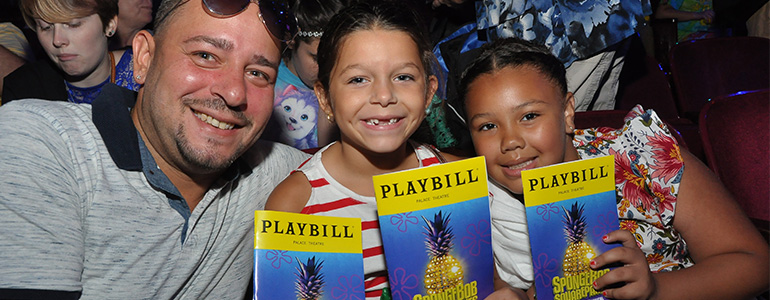Community, Leadership, Experimentation, Diversity, & Education
Pittsburgh Arts, Regional Theatre, New Work, Producing, Copyright, Labor Unions,
New Products, Coping Skills, J-O-Bs...
Theatre industry news, University & School of Drama Announcements, plus occasional course support for
Carnegie Mellon School of Drama Faculty, Staff, Students, and Alumni.
CMU School of Drama
Thursday, September 27, 2018
GUEST BLOG: Get Woke to Three Accessibility Initiatives! By Lisa Carling
The Producer's Perspective: When I was 16 years old, I told my father (who was a Boston physician) that I wanted to be a doctor. “No,” he said, “a woman’s place is not in medical school!” I rebelled, naturally, and went into theatre, acting, divorce, raising a child and TDF where I’ve been happy for over 30 years working in the accessibility field.
Subscribe to:
Post Comments (Atom)

5 comments:
This article was everything I wanted it to be and more. I thought it was going to be about how to make your theater more accessible, but it did so in a way that explained several avenues that have previously been taken by Broadway shows. I really enjoyed getting to read about all of the programs the TDF has gotten to implement in just the short time that the author of this article had worked there. I didn't know there were so many cool opportunities for families with disabilities to come see theater and it's even cooler that these avenues seem to be user friendly and easily accessible. Overall, it is great to read about the awesome things that our community is doing to be more inclusive and accommodating.
It is good to know these resources exist. I took a look at Theater Access NYC, and while the website is very nice, I was disappointed in the lack of options. There were no Autism Friendly performances listed, and only Aladdin, Frozen, and Hamlet offer ASL interpreting. Captions, wheelchair seating, pre-recorded audio descriptions, and assistive listening devices. This doesn’t surprise me, since the common accommodations are the ones that it is easy to include at every performance and don’t require paying an additional person. That being said, the cost of hiring an interpreter is pretty negligible compared to the rest of the cost of putting on a show every night. It would come out to about $500 a performance if I’m not mistaken. I get that it probably wouldn’t draw enough people to necessarily make back that cost, but I still feel like it is right thing to do and won’t really effect the bottom line that much.
This is so helpful! Many companies I worked for back home are beginning to do autism friendly/sensory safe shows, and they’re always looking for resources that can help them better serve the community. At minimum, they can share these links. But it does seem like TDF is a long way away from making a recognizable dent in the Broadway market, from looking at their calendar. Just thinking about why the big shows might resist creating a sensory safe show, it’s easy to see why the producers might balk at the possibility. The entire show would have to been shortened and re-teched, and they would probably have to re-negotiate with most of the designers, and there’s no guarantee that they would be able to fill enough seats to do more than a few performances. Maybe it could be a tax-deductible community program, but I think each company would have to set up a different branch in order to do non-profit in that way. It’s good to know, in any case, that there is an organization that’s working on it.
It is really great to know that there are people actively working to make theatre more inclusive on all levels, and not just at small regional theatres. Last year when I interned at City Theatre here it Pittsburgh they were a part of many of these same programs. They had open captioned performances, ASL interpreted performances, as well as a show with a “audio description”. That last one was new to me, and what they did was to have the describer see the show in advance and they describe the action onstage that would be necessary to understanding the jokes and the best plot. Audience members could pick up a headset that received this live feed, and it really made a difference for them. I am surprised that we don’t do more work like this at CMU. Even though our shows have shorter runs so we may not be able to fit in all of these different kinds of performances, maybe we could try to have a dedicated mainstage performance with supertitles or an interpreter. Although they make take some time to coordinate I really think it would be worth it.
I think it really is incredible how much this organization is expanding. The way that technology is playing into making theater more accessible is great. The article makes it seem like the options are available to anyone, but seeing the others comments show that it article glorifies it more than is actually practical. I think when it comes to providing accessibility options, the most important part is that it is actually available and useable. I myself have seen that theater in general is pushing in this direction, every now and then in Pittsburgh with the CLO's series they will offer autism friendly performances and normally do have either sign language interpretation or closed captioning. I hope and do think that more and more will be done to make theater truly or any audience but it always comes at a cost. The more that ways to adapt shows are tried and succeed will help keep the costs down.
Post a Comment